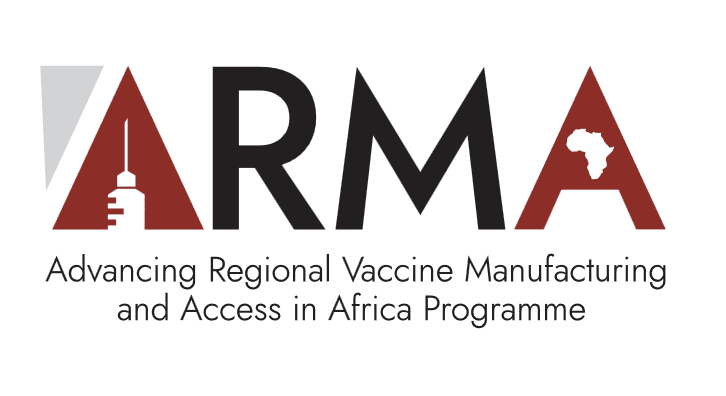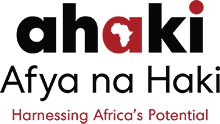Advancing Regional Vaccine Manufacturing and Access in Africa (ARMA) Programme
Introduction
The ARMA Programme will undertake an analysis of the proposed African interventions on pharmaceutical manufacturing such as the Partnership for African Vaccine Manufacturing (PAVM) and African Vaccine Acquisition Trust (AVAT) to identify the potential of such interventions and the areas that need advocacy to influence policy formation and implementation at National, sub-regional and regional levels.
The Programme will also aim to support or ensure that African and Africa-based initiatives that locally manufacture DVTs are supported to flourish and remain sustainable.
Opportunity: As part of its Vision 2040 strategy, the African Union in partnership with the African Centers for Disease Control and Prevention has put in place the African Vaccine Manufacturing Framework for Action (FFA) which is designed to enable a sustainable vaccine-manufacturing industry in Africa to address this problem.
The overall objective of this Programme is to undertake strategic advocacy and resreach interventions that will contribute towards regional Manufacturing of Vaccines in Africa.
KNOWLEDGE PRODUCTS
- Increasing access to Vaccine and Pharmaceutical Products in Africa: The Case for Regional Manufacturing
- Back to the roots? A Brief on Tracing the Evolution of Pharmaceutical Manufacturing in Africa.
- Local Pharmercuetical Manufacturing in Africa: Case Study of a Ugandan Start-up
- Hesitancy in COVID-19 Vaccine Uptake in Uganda
- The Role of Development Finance Institutions in Advancing Vaccine Manufacturing in Africa
- Advancing local production of Essential Health products through institutional, policy and legal reforms in the East and Southern African (ESA) region
- Analysis of the Legal and Policy Framework Governing Manufacturing of Diagnostics, Vaccines, and Therapeutics in 8 Sub-Saharan African Countries
- Analyzing the Capacities of National Medicines Regulatory Agencies To Regulate Vaccine Manufacturing in Africa
- The Role of Regional Economic Communities in Vaccine Manufacturing in Africa
- Assessment of the legal, policy and operational environment of pharmaceutical manufacturers associations in Africa
- The IP Regime and Vaccine manufacturing in Africa
- Partnerships for African Vaccine Manufacturing (PAVM): Progress Towards Local Production of Vaccines in East and Southern Africa (ESA)
- Progress on policy and legislation on vaccine research and manufacturing in the East and Southern Africa (ESA) region
- The place of Traditional Medicinal knowledge in Africa's Pharmaceutical Industry
- Key Players with Legal and Policy mandates to implement and regulate a Sustainable Pharmaceutical Manufacturing Ecosystem for Africa
- Keynote Address on Advancing Regional Vaccine Manufacturing and Access in Africa by Prof. Pontiano Kaleebu

PRIMARY OBJECTIVES_
- To enhance capacities of relevant African institutions to support vaccine manufacturing in Africa through the implementation of Partnership on African Vaccine Manufacturing (PAVM) framework for Action.
- To undertake strategic and impactful campaigns that will advocate and support for market shaping for DVTs in Africa. (Diagnostics-testing solutions, machines; Vaccines and therapeutics- medical Oxygen,)
- To advance a unified regional advocacy voice and agency towards vaccine-related Africentric Research and Development, and manufacturing in Africa
- To strengthen institutional capacities and operations towards enhanced organizational effectiveness
- Africa's Race to 2040 Documentary launch
- Regional meeting on enhancing the role of pharma manufacturing associations
- Regional conference on vaccine manufacturing in Africa
- X space on enhancing the role of pharma manufucturing associations
- Official side event at the 2023 Conference on Public Health in Africa (CPHIA)
The Programme will be implemented at regional level (Africa) covering Uganda, Kenya, Nigeria, Tanzania, South Africa, and Zimbabwe for a period of one year. We hope that with the investment requested we will be able to sustainably generate work and resources to move this Programme beyond its lifespan and integrate its results as part of our institutional programming. The Programme will be implemented by Afya na Haki (Ahaki) in partnership with the Southern and Eastern Africa Trade Information and Negotiations Institute (SEATINI) designed to work collaboratively with regional African institutions, CSOs, and individuals, to promote research and development and manufacturing of vaccines in Africa.
Lead Implementing Partner
Afya na Haki (AHAKI)
Co- Implementing Partner
Southern and Eastern Africa Trade Information and Negotiations Institute SEATINI)
Objective 1: To enhance capacities of relevant African institutions to support vaccine manufacturing in Africa through the implementation of Partnership on African Vaccine Manufacturing (PAVM) framework for Action.
- Enhanced capacities of African Institutions to facilitate vaccine manufacturing in Africa.
- Evidence on enabling legal and policy frameworks enabling local vaccine manufacturing in Africa generated to inform advocacy, policy formulation and reform.
- Utilization of evidence generated on local vaccine-related research and development, and manufacturing
- Increased engagement by relevant African Institutions in vaccine related research and development and manufacturing
Objective 2: To undertake strategic and impactful campaigns that will advocate and support for market shaping for DVTs in Africa.
- Increased public awareness to hold policy and decision makers accountable on affordability, availability and access of DVTs in the region.
- Improved acceptance and uptake of vaccines by the populace in the region
- Policy and decision makers that are responsive to the political, economic and social dynamics that affect the availability of DVTs in the region.
- Improved adherence laws, policies and guidelines relating to public procurement and pricing of DVTs.
Objective 3: To advance a unified regional advocacy voice and agency towards vaccine-related Africentric Research and Development, and manufacturing in Africa
- Strengthened regional networks advancing local vaccine related research and development, and manufacturing in Africa
- A unified voice within the regional blocs towards advancing local vaccine related research and development, and manufacturing in Africa.
- Enhanced capacity of relevant stakeholders to appreciate existing Trade, Investment and IP related policies and advocate for equitable vaccine access and availability
- Coordinated and harmonized regional advocacy efforts to advance local vaccine related research and development and manufacturing
Objective 4: To strengthen institutional capacities and operations towards enhanced organizational effectiveness
Strengthened systems and structures that foster effective delivery on institutional mandates and programme interventions.
- For more than a century, vaccine research and development (R&D) and manufacturing have been concentrated in Europe, India and the United States. Until recently, there were only 10 vaccine manufacturers across five African countries –Egypt, Morocco, Senegal, South Africa and Tunisia jointly producing a tiny fraction of the continent’s needs.
- Africa’s vaccine manufacturing capacity does not match the severity of its vaccine-preventable disease burden. With the inability to produce its own, Africa has ended up at the back of the queue for lifesaving vaccines like the coronavirus jabs. The figures speak for themselves: Less than 12% of the African population is fully vaccinated compared with about 71% of the population in Europe.
- The under developed vaccine research, development and manufacturing in Africa may be attributed to;
- the unfavorable and inadequate policies and regulatory frameworks at national, regional, continental and global levels that do not holistically support vaccine research and development. This stifles African-based existing and potential vaccine manufacturers’ research initiatives.
- Public Private Partnerships (PPPs) only support foreign investments hence research is based on foreign interests. Mainstream research in health is not Africentric yet the raw materials are extracted from Africa’s natural resources which has created anxiety and lack of trust in the vaccines produced in the Global North.
- The limited efforts by African states to pool resources especially technical skills and financial resources has persistently weakened the development of health sector innovations, research, development and industrialization on the continent.
- In some cases, there has been limited commitment from African governments to invest in R&D and Manufacturing in pharmaceuticals generally and the current gaps on vaccines are a reflection of this non-commitment from many African governments.
- As such, the private sector that is investing in African economies is not having the need muscle to pull the African countries out of the crisis on lack of own manufacturing of COVID-19 vaccines.
- In other instances, the African governments have continues to retain colonial and largely neo-liberal laws and policies that don’t take opportunity of policy space in areas of intellectual property law and industrial incentivization which are critical for scaling up vaccine manufacturing in the continent.
- Limited financing has also further restricted the capacity of the National Regulatory Authorities (NRAs) to enact appropriate frame works to regulate and support vaccine development and manufacturing.
- Key stakeholders, especially the Civil Society movements in Africa, play a key role in advancing development initiatives on the continent; however, they significantly lack the capacity to proactively engage policy makers to demand support towards vaccine development initiatives.
Africentric Advocacy and Research Approaches to Advancing Regional Vaccine Manufacturing and Access in Africa (ARMA)
This Newsletter provides an overview of the ARMA programme, with a summary of the programme’s key highlights, milestones and what to look forward to.
Read more >>
